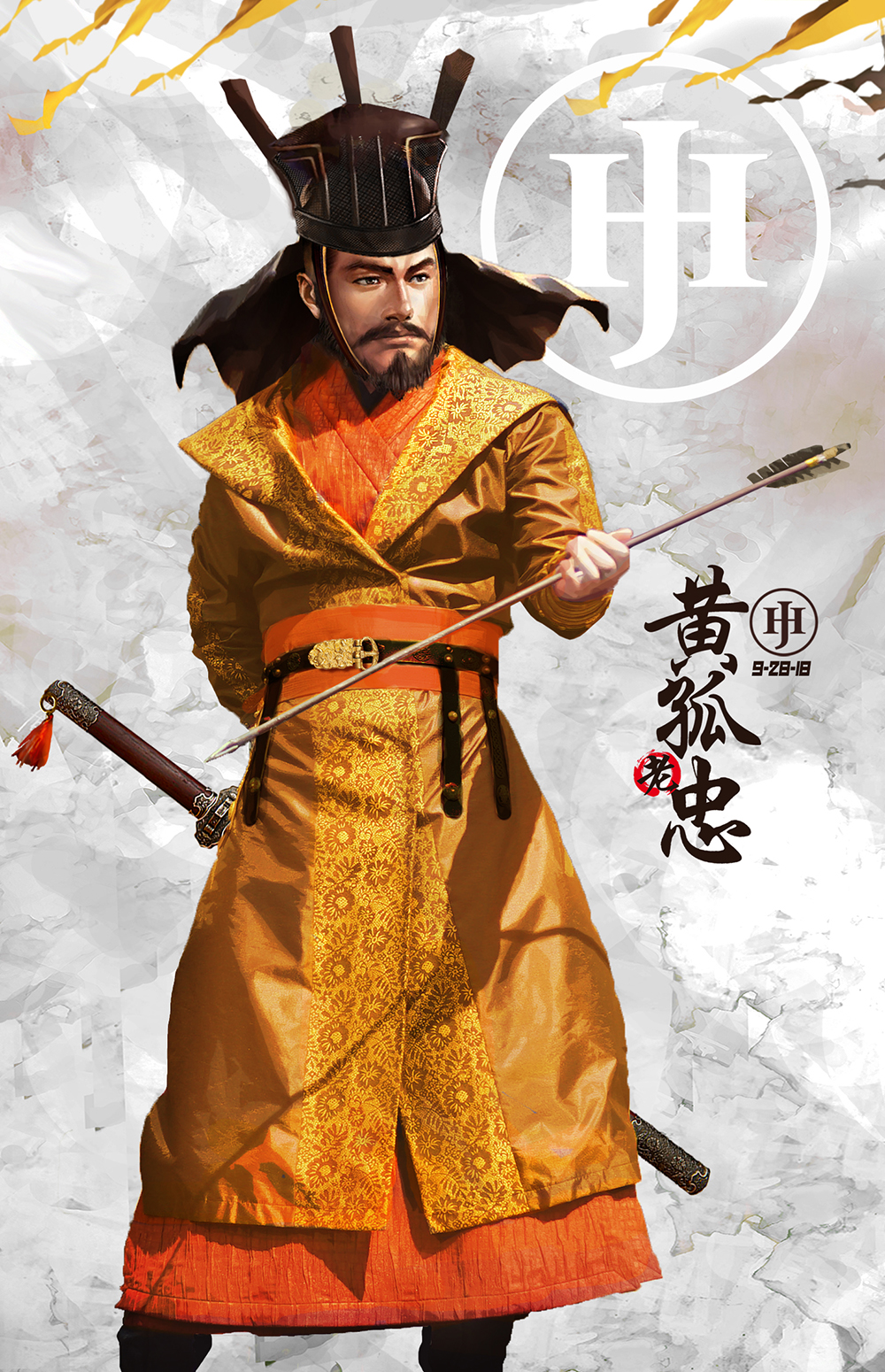Silk Prince 回鹘可汗
Great warriors who delighted in bounties of silk and gold, the Uighurs were the ascendant power in the 7th-8th century. Through cunning politicking, and clever alliance with the Tang dynasty they were able to make themselves the undisputed hegemons of the steppes. The Uighurs consolidated their hold on the steppes of modern Mongolia by building great Tang- influenced walled cities such as Ordu-Baliq and Por-Bazhyn. A string of mudbrick military forts also entrenched their hold on nearly all the key roads of the northern steppes.
Here a young Uyghur Khagan (King) is depicted in bright silk riding coat and a distinctive Turkic belt, a flap of silk spills behind his royal crown.
→ ☯ [PLEASE SUPPORT ME @ PATREON] ☯ ←
Thank you to my Patrons who has contributed $10 and above:
You helped make this happen!
➢ ☯ José Luis Fernández-Blanco
➢ ☯ Vincent Ho (FerrumFlos1st)
➢ ☯ BurenErdene Altankhuyag
➢ ☯ Stephen D Rynerson
➢ ☯ Steven Chan
➢ ☯ Michael Lam
[For a more detailed article about the founder of the Uyghur
Khaganate, please check out this article here. ]









Comments
But by the time the war truly began the Song did manage to be one of the most difficult foes for the Mongols to dislodge (that and the Vietnamese and the Japanese) though the Song did fail in the end, the Mongols even at the zenith of their power still had a lot of problems cracking this very stubborn nut. As Dan Carlin puts it- after dealing with the Chinese the Mongols had little problem with the Rus and the Middle East because comparatively cracking Jin and Song China had greatly acclimated the Mongols with siegecraft and practically steampunk level of weapons arrayed against them. One should realize that when the Mongols were besieging Song defenses they were dealing with grenades and rockets. And when they conquered most of the ME and Russia Song China was still there.
You are right in your observation of the internal limitations within the Mongol Empire. Like most steppe polities succession issues would usually unravel a nearly invincible empire. This happened to many, many Turkic polities, from the Gokturk to the Seljuks. This is why later the Ottomans were so extreme about eliminating the royal princes before a new Sultan take power. The Mongols did better than most, and they were able to keep the internal rivalries low during the first 4 Great Khans. But by the time Mongke died, local politics, and Khans that sought to use local politics to challenge the other branches of the imperial house made the situation untenable as a whole.
But thank you for letting me know, this period fascinates me too. If I have more time I'd certainly devote a long segment about it. :)
The Mongols did go for the Song only after they had conquered much of the known world allready.
Mongol invasion of Russia had 50-60 000 men, that of Europe had 30 000, the nvasion of the Song had 500 000.....
Invasions of Japan, Vietnam and Java were also carried out not by a unified mongol empire, but by one of its splinter states and with far smaller forces involved, then the invasion of the Song. Same goes for the second invasion of Hungary, carried out mostly by Golden horde Cuman and other Turkic troops.
Mongke was a rather smart man, I think there are reasons to believe, that had he not died so early fighting the Song, he might have carried the Mongol empire to new conquests in the west and made it survive for another generation, enough to get at least Germany and Italy, as well as Egypt and the Byzantines, his early death was hence an important event in my opinion.